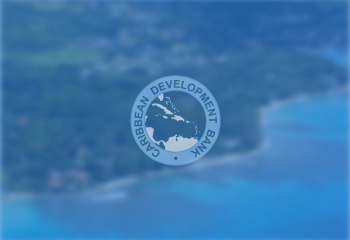CDB approves technical assistance to support economic reforms in Suriname
The Board of Directors of the Caribbean Development Bank (CDB) has approved a grant of USD410,000 to the Government of Suriname, to help the Ministry of Finance implement critical macroeconomic and structural reforms.
The technical assistance project will also strengthen macroeconomic policy and planning, to better support the country’s sustainable development agenda, which aims to improve the livelihoods of all Surinamese.
“This project is critical to unlocking reform dividends over the medium to long term. We know that the Government of Suriname can make significant progress in building a sustainable fiscal regime, stable economy and inclusive growth, with the right technical guidance to steer the implementation of the reform process.” said Dr. Justin Ram, Director of Economics, CDB.
The technical assistance from CDB responds to the Government of Suriname’s urgent need to reduce public debt and set the government’s fiscal accounts on a sustainable path.
“This must be underpinned by a robust reform agenda and critical government ministries, such as the Ministry of Finance, must be able to provide strategic and technical leadership in macroeconomic policymaking that accounts for social and household income distribution impacts,” said Dr. Ram.
The project will provide technical guidance and support for the preparation and implementation of a Medium˗Term Fiscal Framework and Financial Programming Framework. It also includes the provision of technical advice to the Minister of Finance and, by extension, the National Assembly. This advice will focus on macroeconomic policy issues in general and, specifically, on how best to achieve the goals and objectives of the Government of Suriname’s reform programme.
The Ministry of Finance will benefit from strengthened capacity in macroeconomic policy analysis, planning and decision-making through support, training and knowledge sharing. Through the project, the Ministry will also receive guidance on the implementation of critical reforms to support the achievement of key medium-term macroeconomic results, and advice on International Financial Institutions programmes and modalities for borrowing.
The project will also provide critical capacity-building in social, gender-inclusive and responsive macroeconomic policy analysis, planning and decision making.
The economic crisis in Suriname was triggered by a decrease in the price of its major export commodities, and exacerbated by insufficient buffers and policy responses. The recession started in 2015 with the drop in international gold and oil prices and the cessation of alumina production, which resulted in large fiscal and current account deficits.
In August 2015, an ambitious home-grown reform programme was launched to restore macroeconomic stability and confidence, and to pave the way for economic recovery, while protecting the most vulnerable during the adjustment process. This home-grown reform programme catalysed the financial support of the International Monetary Fund through a 24-month Standby Arrangement signed in May 2016, and that of other multilateral institutions, including CDB.

